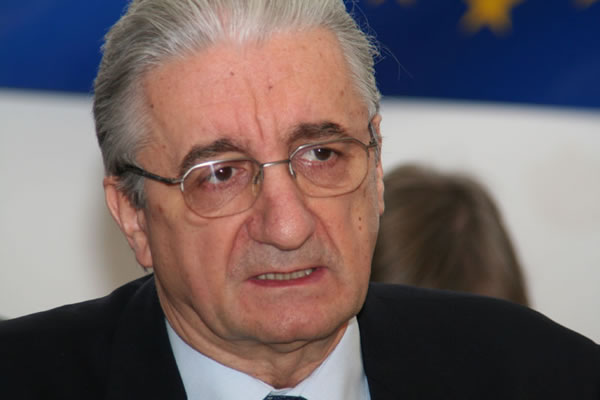Home
MIROSLAV TUDJMAN MUST MEET WITH KARADZIC’S DEFENSE
All attempts to convince the former chief of the Croatian secret service, son of the former Croatian president, to agree to be interviewed by Karadzic’s defense about the purported alleged smuggling of weapons from Iran to Srebrenica and Zepa via Croatia had failed, and the Trial Chamber issued a subpoena ordering the former Croatian secret service chief to come and testify under threat of a prison sentence and/or a fine
 Miroslav Tudjman
Miroslav Tudjman The Trial Chamber in the case against former Republika Srpska president Radovan Karadzic, who is tried for genocide and other crimes in BH, today granted the request of the accused and decided to issue a binding order, or a subpoena to the former chief of the Croatian Intelligence Service (HIS) Miroslav Tudjman, compelling him to agree to be interviewed by Karadzic’s defense. With Judge Kwon appending a separate opinion, the Trial Chamber decided that all requirements for such an order had been met. According to the Trial Chamber, Tudjman could assist the defense in their quest for information about the alleged smuggling of weapons from Iran into the protected areas of Srebrenica and Zepa through Croatia, in 1994 and 1995, with ‘the tacit approval of the USA and other UN member states’.
The majority of the judges in the Trial Chamber accepted the argument of the accused that there were ‘reasonable grounds’ indicating that an interview with Tudjman could be helpful to locate documents in the Croatian archives about the arms smuggling into Srebrenica. Tudjman’s interview could also be useful as preparation for the testimony of the former HIS chief as a defense witness. The information about the purported arms smuggling into Srebrenica is relevant for the Karadzic trial. As the Trial Chamber stated in some of their previous decisions, the information could help asses Karadzic’s state of mind before the attack on the enclave. Also, the Trial Chamber could use the information about the possible role of the UN personnel in the purported smuggling of weapons into Srebrenica, the majority of judges concluded.
This decision reveals there was fascinating correspondence between the accused, the judges, the Republic of Croatia and Miroslav Tudjman, starting in September 2009; the correspondence is no longer under seal. Tudjman snubbed several invitations issued by the Trial Chamber to meet with Karadzic’s legal advisors, saying he didn’t want to cooperate with the accused because he didn’t want to ‘help him voluntarily or to leave an impression that I am helping the accused voluntarily’. Tudjman also said he couldn’t reveal state secrets without the permission of the Croatian authorities. On the other hand, the Republic of Croatia indicated the permission couldn’t be granted before Tudjman asked for it. As Tudjman didn’t want to do it, the only way out of the vicious circle, the Trial Chamber noted, was to issue a binding order.
The binding order compels Miroslav Tudjman to agree to be interviewed by Radovan Karadzic’s legal advisors at ‘a time and place of their choosing’ but not later than 19 September 2011, or to provide a ‘valid reason’ why he couldn’t do it. Representatives of the Republic of Croatia may attend the meeting and the former HIS chief can confer with them about any responses which might contain state secrets. The letter which will be served on Tudjman contains a warning in bold print that his refusal to comply with the Trial Chamber’s order is considered as contempt of court. Under the Tribunal’s Rules of Procedure and Evidence, this carries a penalty of up to seven years in prison and/or €100,000 fine.
